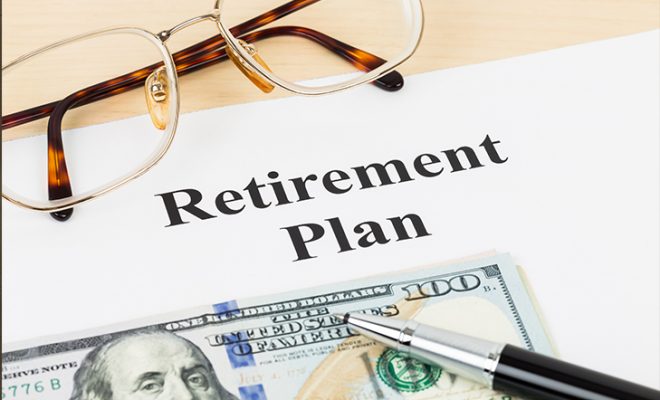Importance of Fixed Income Securities for Retirees

The popular 60:40 or 70:30 asset allocation strategy suggests that when you are young, you should invest 60 to 70% of your portfolio in stocks, equity funds, or other high-risk, high-return assets. However, as you enter your 50s, it becomes increasingly important to reduce this allocation gradually. By the time you reach your 60s and approach retirement, you should ideally flip this ratio and invest more in fixed-income securities and less in equity.
Fixed-income securities can help you preserve the wealth you spent your entire life creating, something retirees can never have too much of. However, before you simply follow the strategy because everyone recommends it, it is essential to understand what fixed-income assets are, how they work, and why they are recommended for retirees.
This article explores everything you need to know about retirement fixed income investments and why they are a significant component of a post-retirement portfolio, as they are often made out to be.
What are retirement fixed-income securities?
Retirement fixed-income securities are investments designed to pay you a regular stream of interest or dividends over time. These are usually on a monthly, quarterly, or annual basis for a term. And when the term ends, you get back the amount you initially put in.
Fixed-income securities are essentially a type of loan that different players issue. These can include municipalities, the U.S. government, and plain old private companies. Since these are loans, the issuing entity borrows money from you. They use it for their projects and then pay you back with interest. So, it is similar to you taking a loan from the bank and paying it back with interest. But in this case, you are the bank, and you get to collect interest from them. This sweet arrangement helps you earn a reliable income, which gives you something you can count on in retirement.
Now, the returns from fixed-income investments are, as you rightly guessed, “fixed”. As perfect as that may sound, there is a downside to this perfection. While the returns are fixed, they are relatively lower, especially when compared to assets like stocks. But in retirement, safety and preservation matter more than going after returns. Hence, these securities are highly recommended despite their low return potential.
Some examples of fixed-income securities include bonds. These can be corporate, municipal, or government bonds. Additionally, Certificates of Deposit (CDs) and Treasury securities are also fixed-income assets that you can consider.
Why are retirement fixed-income investments essential for you in your golden years?
Well, they are important for a myriad of reasons, really. This is something one can go on and on about. So, let’s get to it without further ado:
1. Wealth preservation – So, you can keep calm and preserve on
The money you have worked so hard to build over your life is what you will rely on in retirement. So, it only makes sense to protect it and create a fixed income for retirement. When you invest in fixed-income securities, you create a steady stream of income without exposing yourself to the ups and downs of the stock market. This is what wealth preservation is all about. It keeps your money safe and makes sure it does not disappear when markets tumble.
Think of a hypothetical scenario where you invest $100 in stocks. If the market takes a downturn, your $100 could suddenly be worth only $50. That is not exactly reassuring when you are depending on those funds to pay the bills. With retirement fixed income investments, that $100 stays intact and continues to earn you regular interest payments. The goal of fixed income is to make your savings last and offer you peace of mind. You know what to expect every month and can build a budget around it.
2. Not just preservation but also portfolio protection – the 3 P’s
Did you know that a layer of legal protection insulates many fixed-income securities?
The Securities Investor Protection Corporation (SIPC) provides coverage up to $500,000 for cash and fixed-income securities kept in brokerage accounts. If the brokerage firm fails and if you are holding fixed-income CDs, they are insured by the Federal Deposit Insurance Corporation (FDIC) for up to $250,000 per depositor.
Additionally, Treasury bonds come with the full backing of the U.S. government. Corporate bonds, while not government-backed, are supported by the financial health of the issuing company. And if the worst happens and the company goes bankrupt, bondholders are first in line to claim the company’s assets ahead of shareholders. This gives an extra point to bonds over stocks.
3. Earn slow and steady returns and win the race
When it comes to retirement, slow and steady really does win the race. Fixed-income securities are designed to give you predictable, steady returns without the tumult of the stock market. If you are trying to plan for your expenses in retirement, knowing exactly how much income your investments will generate every month can make budgeting a lot easier. Regular interest or dividend payments can help you cover everyday costs, such as food, socializing, utilities, prescription drugs, and more.
The combination of steady returns and legal protection makes fixed-income investments ideal for retirees. They help you maintain your lifestyle, and you do not have to worry about sudden losses wiping out your nest egg.
4. Lower your tax bills and fill your pockets with more money
Some fixed-income securities can help keep more money in your pocket. Municipal bonds are a prime example. The interest you earn from most municipal bonds is exempt from federal income tax, which can be a huge advantage if you are in a higher tax bracket in retirement. In some cases, you can even avoid state and local taxes if you live in the state where the bond is issued.
Another concept worth knowing is the amortizable bond premium. This applies when you pay more than the bond’s face value at purchase. The good part? You can gradually deduct that premium over the bond’s life, which reduces your taxable income a little bit each year.
Not all fixed-income securities come with tax breaks, but knowing which ones do can give you a nice edge.
Municipal bonds are generally seen as a smart way to combine safety with tax efficiency. Of course, if you buy these bonds in the secondary market and then decide to sell them for a profit, you may owe capital gains tax, either at the long-term or short-term rate, depending on how long you held them.
When you put it all together, the tax benefits of certain fixed-income securities can add up to real savings. Less money going to the government and more money for your retirement – a truly win-win situation.
What are the best fixed-income investments for retirees?
Let’s explore the best fixed-income investments for retirees:
1. Municipal bonds
State and local governments can issue municipal bonds. They are used for local projects that need funding, such as a bridge or a school. Now it is great to be contributing to these projects as they benefit the public, which includes you, too. But there is an even bigger perk. You earn steady interest. And, the interest you earn is generally exempt from federal income tax. In some cases, they may also be free from state and local taxes. That’s a win-win-win situation!
2. Corporate bonds
Corporate bonds are issued by private companies looking to raise capital. They carry more risk than municipal and government bonds, but they can also potentially generate higher returns. But when investing in them, try to stick with companies that have strong credit ratings to keep the risk under control.
3. Treasury Inflation-Protected Securities (TIPS)
One of the biggest threats to retirees is inflation. TIPS help you fight back. These government-issued bonds are indexed to inflation, meaning their value increases in line with rising prices.
4. Certificates of Deposit (CDs)
CDs are a good option if you want safety and also a guarantee. With a CD, you leave your money with the bank for a set term, anywhere from a few months to several years, and in return, you get a fixed interest rate. CDs are insured by the FDIC up to $250,000 per depositor, per bank, so your money is protected.
5. Dividend-paying stocks
You do not have to swear off stocks entirely just because you are retired. Dividend-paying stocks can provide a steady stream of income along with some growth potential. However, be sure to invest in companies that are well-established and performing well.
Can retirement fixed-income investments have some cons, too?
Well, yes, they certainly have their shortcomings. Let’s look at a few of the key downsides:
1. Potentially lower returns
Because these investments are designed to be more stable, they typically pay you less compared to riskier assets like stocks. Hence, over time, you might be missing out on higher growth that can make a big difference. Stocks, despite their ups and downs, have historically delivered higher returns over the long run. But, bonds, CDs, and other fixed-income assets may not be able to match up. They will preserve your wealth but not appreciate it.
2. Interest rate risk
There is a simple rule in the bond world – when interest rates go up, bond prices go down. They have an inverse relationship. So, if you need to sell a bond before it matures in a rising-rate environment, you might get less than you paid for it.
Also, even though some fixed-income products like CDs do not lose value directly, you could face early withdrawal penalties if you need your money before the term ends.
3. Inflation risk
While fixed income gives you steady payments, it struggles to keep up with rising prices. Treasury Inflation-Protected Securities (TIPS) can help, but other fixed-income options may not hold up as well. If the interest rate you are earning is lower than the inflation rate, you could end up losing ground even though you are technically earning income.
4. Limited access to cash
Liquidity is another challenge. With fixed-income investments, your money is not always easy to get to when you need it. If you are in a seven-year CD and need to tap those funds early, you will likely pay a penalty. Bonds can be sold on the open market, but you will only get the market price at the time. And, if demand is low, you might have to sell at a loss.
So, while these securities can provide a fixed income for retirees, whether retirees have access to the money is a bit of a question, given the rules and lock-in periods.
Should you still invest in fixed-income securities in retirement?
Yes!
Fixed-income securities can and should be in your retirement portfolio. But being financially prudent is key in your golden years. So, you have to invest in fixed-income securities the smart way.
How?
Well, here’s how:
You should not put all your money into one type of fixed-income product and call it a day. Diversification is essential in retirement if you want to avoid seeing your portfolio turn red at the slightest inconvenience. For example, if you have a five-year CD that you cannot liquidate, your bond holdings can still provide regular income and ensure cash flow. You can maintain a mix of corporate bonds and municipal bonds to diversify your risk. This keeps a portion of your portfolio liquid and accessible if you need cash.
And please, do not forget about stocks entirely. While you may not want to take on too much risk, dividend-paying stocks from large-cap or blue-chip companies can offer growth potential to stay ahead of inflation while keeping risk low.
Don’t put all your eggs in one fixed-income basket!
The takeaway is simple. Fixed-income securities can be a good addition to your retirement portfolio, as they offer low risk, stable returns, and potential tax benefits. However, you need to invest in them in a diversified manner to balance it all out. You cannot invest all of your money into one type of fixed-income security and call it a day. You should also be aware of their limitations and what you may be giving up in exchange for lower risk.
When selecting the right mix of options, it is always wise to consult a qualified financial advisor. Our free advisor match tool can help you connect with the right professional for retirement planning.
For further information on creating a suitable retirement plan for your unique financial requirements, visit Dash Investments or email me directly at dash@dashinvestments.com.
About Dash Investments
Dash Investments is privately owned by Jonathan Dash and is an independent investment advisory firm, managing private client accounts for individuals and families across America. As a Registered Investment Advisor (RIA) firm with the SEC, they are fiduciaries who put clients’ interests ahead of everything else.
Dash Investments offers a full range of investment advisory and financial services, which are tailored to each client’s unique needs providing institutional-caliber money management services that are based upon a solid, proven research approach. Additionally, each client receives comprehensive financial planning to ensure they are moving toward their financial goals.
CEO & Chief Investment Officer Jonathan Dash has been covered in major business publications such as Barron’s, The Wall Street Journal, and The New York Times as a leader in the investment industry with a track record of creating value for his firm’s clients.










